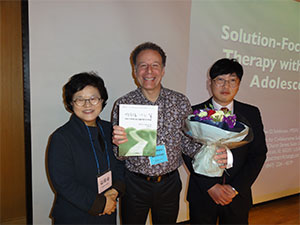
PATIENTS AS HEROES: KEYS TO FOSTERING STRONG COOPERATIVE PARTNERSHIPS WITH PATIENTS TO PROMOTE POSITIVE HEALTH OUTCOMES
Ultimately, it is the patient’s courage, self-healing capacities, and optimism that pave the way to more rapid health recovery and positive treatment outcomes. They are truly the heroes and experts on their illnesses and healing stories. A growing body of research on doctor-patient interactions has indicated that the quality of and the kind of relationship climate doctors co-create with their patients’ plays a major role in the healing process. When doctors adopt a privileged expert position vis-à-vis their patients, talk down to and make little room to listen to their patients’ concerns, lack warmth and empathy, and are the dominate voice in their interactions, this can adversely effect their healing process and long-term health recovery.
In this “hands-on” practice-oriented workshop, medical students, residents, and physicians will learn a set of empirically-validated relationship skills that have been found to promote strong doctor-patient partnerships, enhance the patient healing process, and increase positive health outcomes. As a result of attending this workshop, participants will be able to:
- Assess for and tailor-fit the relationship of choice to best meet the needs of the patient
- Employ empirically-validated relationship skills to rapidly build strong health-promoting alliances with patients
- Utilize patients’ strengths, courage, past healing success stories, theories of change, and concerns for improving the quality of the evolving health-promoting relationship and treatment planning purposes
- Use health-promoting questions that tap patient expertise, elicit their best treatment hopes, and co-create compelling future realities with them
- The use of self and improvisation outside your comfort zone with difficult patients
- Strategies for resolving treatment impasses and noncompliance dilemmas
- Organizing a social ecology: Tapping the expertise of patients’ concerned partners, families, relatives, and closest concerned friends to further optimize for patients’ treatment success and to prevent relapses
The workshop format will include information-rich didactic presentation and skill-building exercises.

